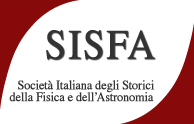Speaker
Description
Goethe's polemics against Newtonian optics is not rarely mentioned as a singular instance of incompetent stubbornness, or quickly dismissed as an embarrassing incident, not worthy of Goethe’s stature. Goethe’s presence in the mind of 20th-century physicists is however not a negligible chapter, as systematic omissions of some kind of historians seem instead to suggest. From E.Schrödinger to F.London, from A.Einstein to W.Heisenberg, and even in later generations in far-away Japan – e.g., Y.Nambu –, Goethe’s presence can be assessed, not only due to the pre-eminence of his literary work but to a suffused Naturphilosophie as well, not easily expressible in barren analytical terms – and why would one need to rephrase it otherwise, when Goethe himself expressed it magnificently in his own words? Even more significantly, physicists of the calibre of Heisenberg and Pauli, as well as the former's disciple von Weizsäcker, although recognizing the ‘mistakes’ of the Goethean polemics in optics, tried to extract from that episode important lessons and expectations about the future of science. While some commentary on the essay that Heisenberg dedicated to the topic (“Die Goethesche und die Newtonsche Farbenlehre im Lichte der modernen Physik") does exist, but in a form that is often a mere paraphrasis of it, in this paper we intend to discuss critically some of the few attempted contextualizations, such as C.Carson's, and comment on Heisenberg's view in the light of other crucial texts of his as well as some letters, also putting it for the first time in relation to Pauli's much less known similar considerations.
